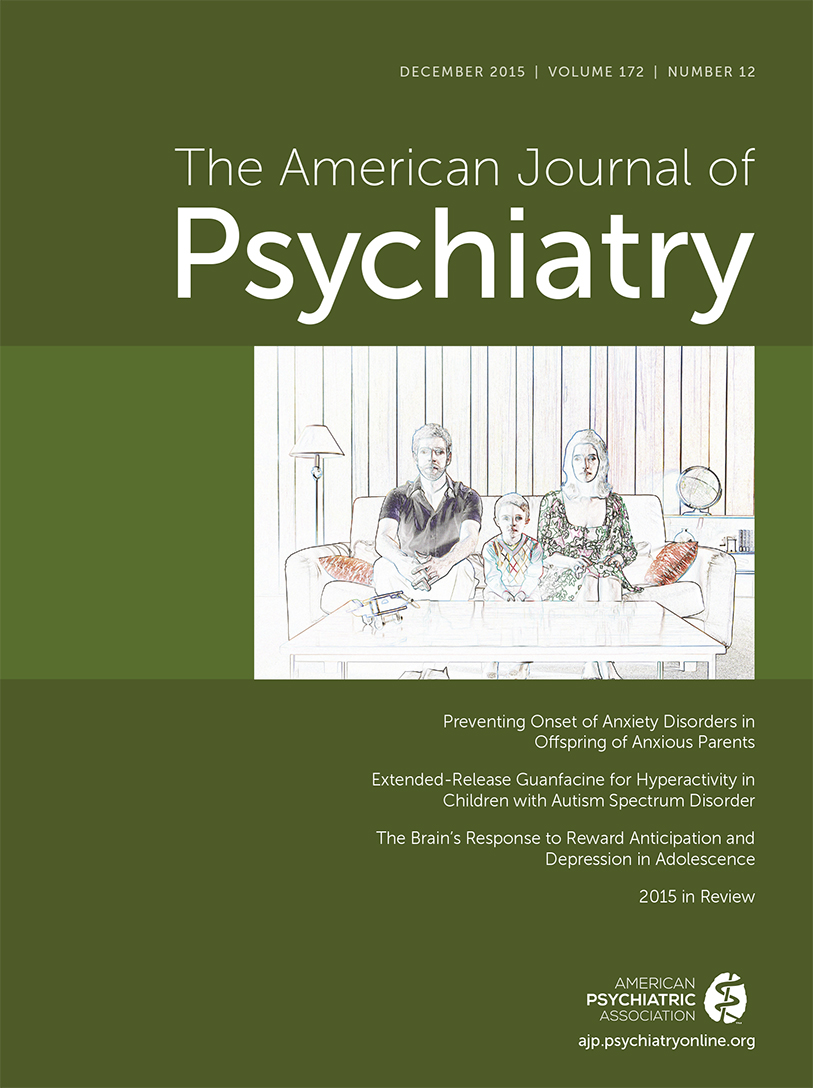Ziprasidone Augmentation of Escitalopram for Major Depressive Disorder: Efficacy Results From a Randomized, Double-Blind, Placebo-Controlled Study
Abstract
Objective:
The authors sought to test the efficacy of adjunctive ziprasidone in adults with nonpsychotic unipolar major depression experiencing persistent symptoms after 8 weeks of open-label treatment with escitalopram.
Method:
This was an 8-week, randomized, double-blind, parallel-group, placebo-controlled trial conducted at three academic medical centers. Participants were 139 outpatients with persistent symptoms of major depression after an 8-week open-label trial of escitalopram (phase 1), randomly assigned in a 1:1 ratio to receive adjunctive ziprasidone (escitalopram plus ziprasidone, N=71) or adjunctive placebo (escitalopram plus placebo, N=68), with 8 weekly follow-up assessments. The primary outcome measure was clinical response, defined as a reduction of at least 50% in score on the 17-item Hamilton Depression Rating Scale (HAM-D). The Hamilton Anxiety Rating scale (HAM-A) and Visual Analog Scale for Pain were defined a priori as key secondary outcome measures.
Results:
Rates of clinical response (35.2% compared with 20.5%) and mean improvement in HAM-D total scores (–6.4 [SD=6.4] compared with –3.3 [SD=6.2]) were significantly greater for the escitalopram plus ziprasidone group. Several secondary measures of antidepressant efficacy also favored adjunctive ziprasidone. The escitalopram plus ziprasidone group also showed significantly greater improvement on HAM-A score but not on Visual Analog Scale for Pain score. Ten (14%) patients in the escitalopram plus ziprasidone group discontinued treatment because of intolerance, compared with none in the escitalopram plus placebo group.
Conclusions:
Ziprasidone as an adjunct to escitalopram demonstrated antidepressant efficacy in adult patients with major depressive disorder experiencing persistent symptoms after 8 weeks of open-label treatment with escitalopram.
Access content
To read the fulltext, please use one of the options below to sign in or purchase access.- Personal login
- Institutional Login
- Sign in via OpenAthens
- Register for access
-
Please login/register if you wish to pair your device and check access availability.
Not a subscriber?
PsychiatryOnline subscription options offer access to the DSM-5 library, books, journals, CME, and patient resources. This all-in-one virtual library provides psychiatrists and mental health professionals with key resources for diagnosis, treatment, research, and professional development.
Need more help? PsychiatryOnline Customer Service may be reached by emailing [email protected] or by calling 800-368-5777 (in the U.S.) or 703-907-7322 (outside the U.S.).



